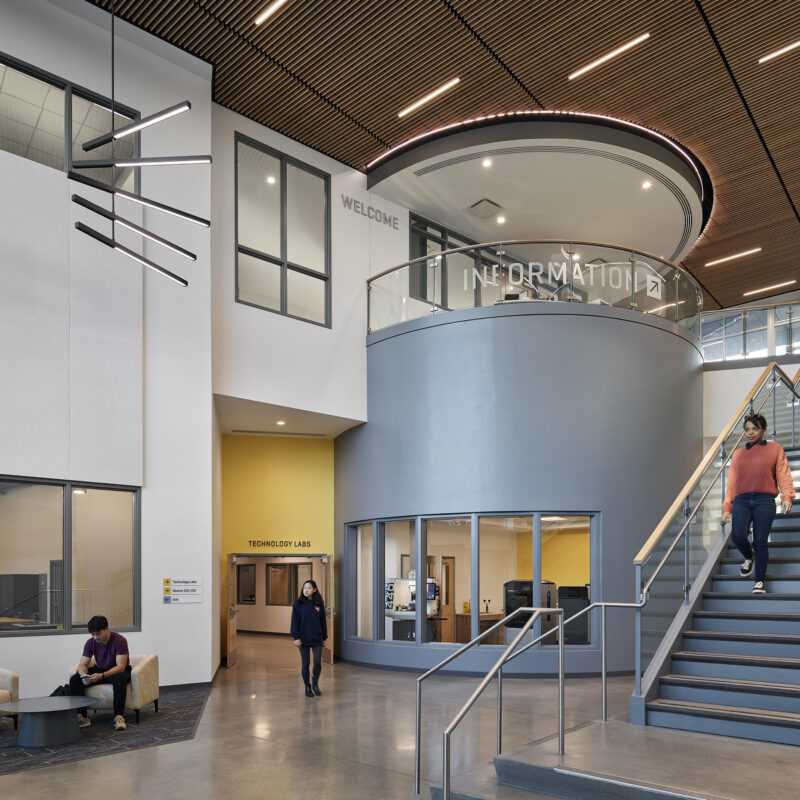As they peruse a restaurant wine list or browse the shelves of the local wine shop, do most imbibers know how all of those foreign bottles made their way here? From finding a promising producer in the European countryside, to navigating a logistic and regulatory thicket to usher the product into the U.S., to presenting and distributing it to retail customers, a knowledgeable wine importer makes it all happen. Here are three of Charlottesville’s hard-working, hometown importers, always ready to bring it.
Sparkle and shine
Pamela Margaux (above) spent 25 years in the Sonoma Valley restaurant business before she and her husband, French winemaker Claude Thibaut, moved to Virginia. “I learned a lot about wine in Sonoma, but as my palate grew I began to prefer the balance and earthiness of French wines over the jammy California wines,” says Margaux. When Thibaut’s business partner Manuel Janisson (together the co-creators of the Thibaut-Janisson line of Virginia sparkling wines), asked Margaux if she would try her hand at importing French wine, she was game.
“In 2005, I received my first container of champagne, which is 600 cases,” she says. “I leased a temperature-controlled storage unit on Pantops, and went out every day with 10 cases in the back of my station wagon, selling it to restaurants and retailers.” The trio expected it would take Margaux 18 months to sell it all, but she was done in three. “I like this,” she remembers saying to Janisson. “Let’s find more wines.”
“Pop!” culture
Pamela Margaux recommends these imports of hers, most available at Wine Warehouse, Market Street Market, Tastings, or Foods of All Nations.
Champagne Guiborat Blanc de Blanc NV (from the Cremant region of Champagne)
J Fritsch Lieu-Dit-Altenburg Pinot Gris (from Alsace)
Chateau La Croix Taillefer 2014 (from the Pomerol region of Bordeaux)
Roland Tissier Sancerre 2017 (“A most delicious Sauvignon Blanc from the Loire Valley”)
Domaine de Bel Air La Fosse aux Loup Chinon (“A really earthy Cab Franc also from the Loire”)
Xavier Chateauneuf du Pape 2015 (“A Rhone Valley Classic”)
Now she imports and distributes “really pure and regionally correct” small-producer French wines throughout Virginia, Maryland, and Washington, D.C., and she distributes Virginia wines as well. Local winemakers such as King Family, Pollack, Cardinal Point, and Gabriele Rausse look to Margaux for cost-effective statewide distribution.
“Some wineries don’t make enough wine to hire a distributor,” she says, “so they might choose to self-distribute or simply to sell all their wine from their tasting rooms. But others feel that it’s an important part of their marketing plan, and they want to get out to other regions in the state.” While distributors typically charge a 30 to 35 percent markup for their services, they handle all the logistics and hassle of keeping up with demand from dozens or hundreds of accounts.
Margaux buys from 60 different producers in France, traveling to the region two or three times a year and constantly looking to “freshen her book,” or update the portfolio of wines she offers. The process is a balancing act that has to allow for up to eight weeks to receive an order from France before she can even begin presenting a new wine to clients, and it’s an expensive one, involving licensing, taxes, a sales force, vehicles, storage costs, and more, but Margaux’s reputation has made her the go-to gal for her special selections. “It’s really quite an exciting business,” she says.

Though he didn’t grow up in a family who drank a lot of wine, Didier Simonin taught himself about the beverage (and the industry), eventually—for a while, at least—becoming Charlottesville’s sole importer. Photo: Amy Jackson Smith
French connection
While many importers begin with a familial connection to the food and beverage industry to spur their interest, Didier Simonin’s Parisian family did not drink much wine. “I was raised between Perrier and orange juice,” he says with a smile. “I started drinking alcohol when I was 25.” Even then, he did so for work rather than pleasure
As a commercial realtor, Simonin was often asked to choose the wine for a table full of bankers and developers, so he taught himself how to enjoy it. “I started buying wine and opening some every day, spitting it out, tasting all the different types,” he says. Eventually he went to the Burgundy Wine School in Beaune, France, to learn everything about the process from the vine to the bottle.
In 1999, he moved to Charlottesville with his then-wife, a Charlottesville native, and set about meeting the town’s wine influencers. “When I first met Bill [Curtis, owner] at Tastings just after I arrived here, I told him I was interested in being in the wine business, and he said, ‘Don’t do it! Never do it!’” says Simonin, laughing. “But that’s the worst thing you can tell me, because then I really have to see if I can do it.” Curtis and Vincent Derquenne of Bizou, now long-time friends of Simonin’s, were valuable early mentors who share his unquenchable curiosity about wine.
Drink local
Didier Simonin points to a couple of favorite selections at restaurants around town.
Champagne Soutiran, found at Fleurie, Common House, Tastings, Petit Pois, Bang, and Bizou
Fratelli Grasso (Italy), Barbaresco, found at The Alley Light, Tastings, and Fleurie
For the first six years, Simonin was Charlottesville’s sole importer, and found he liked creating brands for wines, making them memorable for buyers. “I was always good at marketing, it’s what I love. If you give me a rock, I can find a way to promote that rock and make it the best rock that you don’t have but wish you had.”
Beginning with 10 French producers, he now imports dozens but prefers to work mostly solo. (He recounts that his first hire in 2004 was Will Richey, now mega-owner/manager of many popular local eateries.) Simonin still drives a round-trip distribution circuit through D.C. three days a week, as he has since 2001.
Though he loves Paris, Simonin’s heart belongs here now. “There is something so dynamic about the culture, I think it’s the intellectual nature of Charlottesville, always thinking, questioning,” he says. “It is absolutely amazing to have three importers based here, all bringing wine to this tiny town.”
 Williams Corner Wine CEO Nicolas Mestre convinced his business partners to focus on natural wines—those that use organic and biodynamic grape-growing techniques. Photo: Amy Jackson Smith
Williams Corner Wine CEO Nicolas Mestre convinced his business partners to focus on natural wines—those that use organic and biodynamic grape-growing techniques. Photo: Amy Jackson Smith
Au naturel
Nicolas Mestre grew up in the Haute-Savoie region of France where his dad worked in the restaurant business, and good food and wine were ever-present. “My memories of growing up are of people sitting around the dining room table drinking and eating, talking and laughing,” says Mestre. He began working at Tastings in Charlottesville when he turned 21, learning about importing and distribution as well, and soon linked up with fellow connoisseurs Andrew Greene, Toby Beard, and Ted Burns in their labyrinthine wine cellar underneath the Downtown Mall.
“It was a vast space they rented under the old Williams Corner Bookstore [now the Virginia National Bank building], where they stored their wine collection.” says Mestre. “We spent a lot of time down there drinking wine, and it was there that we first got the idea for the business.” It was also the inspiration for the name of the business, Williams Corner Wine, where Mestre now serves as CEO.
Peak placement
Nicolas Mestre, CEO of Williams Corner Wine, highlights a few choice placements on local menus.
Prime 109
Dirty & Rowdy 2017 California Mourvedre “Unfamiliar”
C&O
Yohan Lardy 2016 Moulin-a-Vent “Vieilles Vignes de 1903”
Tastings of Charlottesville
Domaine Aux Moines 2015 Savennieres Sec
Turning away from conventional mass producers, Mestre became increasingly interested in wines made with a more eco-friendly approach, using organic and biodynamic grape- growing techniques. When he didn’t find such wines being imported to the U.S., he convinced his co-founders that “natural wines” should be Williams Corner’s focus.
“The mass use of pesticides and herbicides, while giving producers the ability to achieve higher yields and quantities of finished wine, also ends up diluting that sense of place and authenticity of the product,” says Mestre. This “terroir,” the characteristic flavor imparted to a wine by the environment where it’s produced, is the unique aspect Mestre is working to preserve.
An importer is a kind of agent, pairing delicious discoveries in one part of the world with receptive palates in another. “It’s like being a curator,” says Mestre. “I have a certain style in my portfolio that’s not going to appeal to everyone, but I really believe in it.” At the same time, an importer’s job is to expose the market to new tastes. “Importers are at the forefront of influencing the arc of taste in the industry. Often we try to bend the market toward the types of things we’re interested in bringing to it.”
Mestre sees natural wines slowly gaining a following. “There’s a re-thinking—did we lose something in the industrialization of wine,” he says. “Lots of growers are, as with the farm movement, examining how they make their product, preserving authenticity whether it be of place or style, and to me that’s very interesting.”





